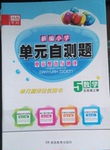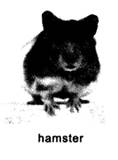题目内容
What should you think about in trying to find your career? You are probably better at some school subjects than others. These may show strengths that you can use in your work. A boy who is good at mathematics can use that in an engineering career. A girl who spells well and likes English may be good at office work. So it is important to do well at school. On the other hand, you may not have any specially strong or weak subjects but your records show a general satisfactory standard. Although not all subjects can be used directly in a job, they may have indirect value. Knowledge of history is not required for most jobs but if history is one of your good subjects you will have learned to remember facts and details. This is an ability that can be useful in many jobs.
Your school may have taught you skills, such as typing or technical drawing, which you can use in your work. You may be good at metal work or cookery and look for a job where you can improve these skills.
If you have had a part-time job on Saturdays or in the summer, think what you gained from it. If nothing else, you may have learned how to get to work on time, to follow instructions and to get on with older workers. You may have learned to give correct change in a shop, for example. Just as important, you may become interested in a particular industry or career you see from the inside in a part-time job.
Facing your weak points is also part of knowing yourself. You may be all thumbs when you handle tools. Perhaps you are a poor speller or cannot add up a column of figures. It is bitter to face any weaknesses than to pretend they do not exist. Your school record, for instance, may not be too good, yet it is an important part of your background. You should not be apologetic about it but instead recognize that you will have a chance of a fresh start at work.
51. We can infer from the first paragraph that_______.
A. learning better at school shows power in your job
B. the better you are at school subjects, the more helpful they are in your career
C. learning each subject well is an ability in many jobs
D. we should think about how to find our career
52. According to the passage, if a student’s school record is not good, he will _________.
A. have no hope in his future work
B. be hopeful to find a suitable job
C. regret not having worked harder at school
D. have an opportunity of a new beginning in his future work
53. All the subjects may have direct value for job hunting except___________.
A. mathematics B. English C. history D. technical drawing
54. The underlined words "all thumbs" in Paragraph 4 most probably mean_________.
A. heavy-handed B. the best C. important D. skilled
55. The passage mainly discusses ___________.
A. the relationship between school performance and career
B. how to get a job
C. how to show strengths in your work
D. working experience and knowledge at school
Your school may have taught you skills, such as typing or technical drawing, which you can use in your work. You may be good at metal work or cookery and look for a job where you can improve these skills.
If you have had a part-time job on Saturdays or in the summer, think what you gained from it. If nothing else, you may have learned how to get to work on time, to follow instructions and to get on with older workers. You may have learned to give correct change in a shop, for example. Just as important, you may become interested in a particular industry or career you see from the inside in a part-time job.
Facing your weak points is also part of knowing yourself. You may be all thumbs when you handle tools. Perhaps you are a poor speller or cannot add up a column of figures. It is bitter to face any weaknesses than to pretend they do not exist. Your school record, for instance, may not be too good, yet it is an important part of your background. You should not be apologetic about it but instead recognize that you will have a chance of a fresh start at work.
51. We can infer from the first paragraph that_______.
A. learning better at school shows power in your job
B. the better you are at school subjects, the more helpful they are in your career
C. learning each subject well is an ability in many jobs
D. we should think about how to find our career
52. According to the passage, if a student’s school record is not good, he will _________.
A. have no hope in his future work
B. be hopeful to find a suitable job
C. regret not having worked harder at school
D. have an opportunity of a new beginning in his future work
53. All the subjects may have direct value for job hunting except___________.
A. mathematics B. English C. history D. technical drawing
54. The underlined words "all thumbs" in Paragraph 4 most probably mean_________.
A. heavy-handed B. the best C. important D. skilled
55. The passage mainly discusses ___________.
A. the relationship between school performance and career
B. how to get a job
C. how to show strengths in your work
D. working experience and knowledge at school
51-55 BDCAA

练习册系列答案
 优生乐园系列答案
优生乐园系列答案 新编小学单元自测题系列答案
新编小学单元自测题系列答案
相关题目
 Hamsters are lovely small animals which are similar to mice,and some people 1ike to keep them as pets.They need to eat a balanced diet,or they can become very sick.That’s why hamsters should be fed healthy foods.
Hamsters are lovely small animals which are similar to mice,and some people 1ike to keep them as pets.They need to eat a balanced diet,or they can become very sick.That’s why hamsters should be fed healthy foods.